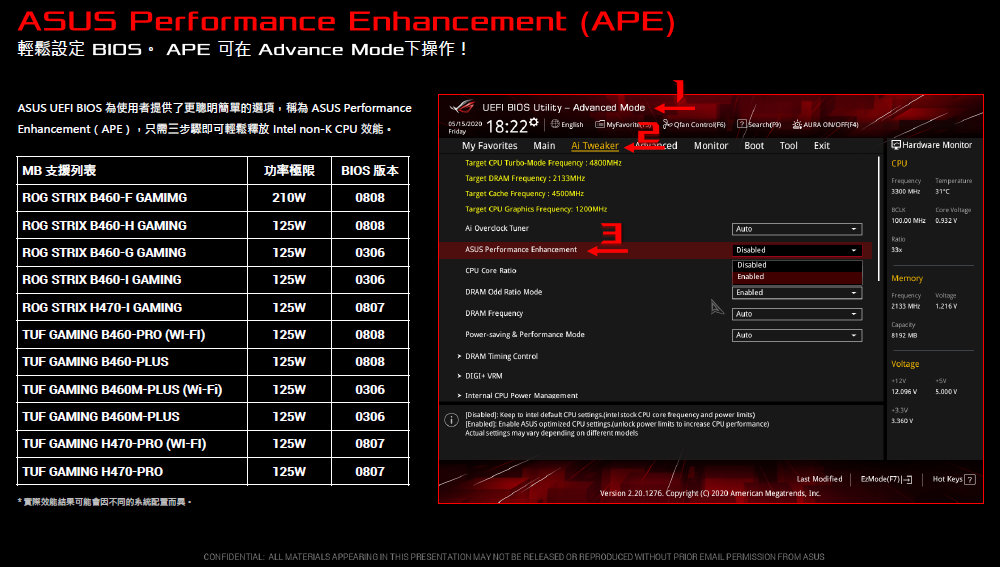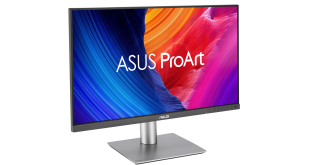Earlier this month, we shared the news about ASRock's approach to enabling overclocking of non-K CPUs on non-Z motherboards. Now it seems that both MSI and Asus will also offer the same feature on their non-Z motherboards.
In both cases, the idea is the same, as users will be able to adjust the power settings for Intel's Core 10th Gen processors. Asus calls its implementation APE (Asus Performance Enhancement), while MSI offers the feature within the “Power Limit Setting”. The boost is based on your system's motherboard and on its cooling system, given that increasing the clock speeds and power settings will increase the CPU's temperature proportionally.
The rated TDP for Intel CPUs (PL1) only refers to the power consumption while operating at base frequencies. When Turbo Boost kicks in, the power consumption increases and the clocks are boosted, based on the PL2 setting. By increasing both values within their BIOS, Asus and MSI motherboards should allow users to extract increased performance from the CPU.
Image Credit: Benchlife.info
ASRock BFB can increase the PL1 to 125W, but the company has not shared its increased PL2 value. According to Benchlife, the majority of Asus motherboards can also raise the PL1 to 125W, with the only exception being the Asus ROG Strix B460-F which can increase it to 210W. On the other hand, as posted on Chiphell, MSI's MAG B450M Bazooka is capable of setting the PL1 to 135W and the PL2 to 180W, while the MAG B460 Tomahawk and MAG B460 Mortar (WiFi) seem to have both the PL1 and PL2 set to 255W.
When APE is on, depending on the ASUS motherboard used, the core frequency of the Core i5-10600 and the Core i9-10900 can boost up to 4.4GHz, while the Core i7-10700 can boost up to 4.5GHz. With the MSI motherboards, also depending on the specific model, the Core i5-10600 core frequency can boost up to 4.4GHz, the Core i7-10700 can boost up to 4.6GHz, and the Core i9-10900 can reach a core frequency of 4.45GHz.
Discuss on our Facebook page HERE.
KitGuru says: Based on this information, would you choose a non-K CPU and a non-Z motherboard for your system? How do you think Intel will react to this?
 KitGuru KitGuru.net – Tech News | Hardware News | Hardware Reviews | IOS | Mobile | Gaming | Graphics Cards
KitGuru KitGuru.net – Tech News | Hardware News | Hardware Reviews | IOS | Mobile | Gaming | Graphics Cards



